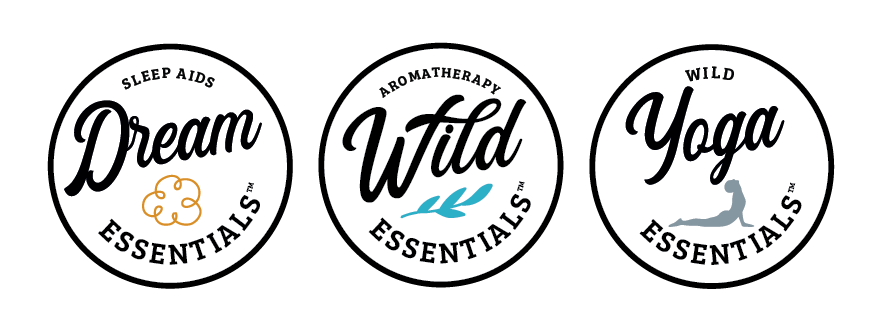
The Inexorable Link Between Lack of Sleep and Depression.
by Eve Pearce
The relationship between lack of sleep and depression is a complex and circular one. The scientific community has long established that depression manifests itself in sleep disorders, but new studies have established that the issue is actually far more intricate than we thought. Everyone needs a good night’s sleep, and fortunately, the new millennium makes a date with the Sandman that much more attainable, thanks to useful tools like sleep masks, aromatherapy and soothing music. For those suffering from mental conditions like depression or anxiety, however, a good night’s sleep is more than a pleasure: it just may be the vital link that keeps them connected to life.
How Sleep Patterns are Affected by Depression
Several studies have been conducted into how depression affects sleep patterns and one of the most illuminating of these was published in the Indian Journal of Psychiatry. The study established that depression is associated with sleep disturbances, not only qualitatively, but also quantitatively. A significantly higher percentage of depressed subjects complain of nocturnal awakenings, non-refreshing sleep and difficulty in getting out of bed in the morning, than sleepers without depression. Moreover, depressed people tend to wake up earlier. The more severe the level of depression is, the more factors like total sleep time, sleep efficiency and frequency of nocturnal awakenings, are affected.
Which Came First: Sleep Disorder or Depression?
Research published in the Journal of Nervous & Mental Disease has made a great breakthrough in understanding the inter-dependent nature of mental disease and quality of sleep. The research found that men with diagnosed sleep apnea are more than twice as likely to show signs of clinical depression, including feeling hopeless and lacking an interest in daily life; interestingly, signs and symptoms of depression in women are almost identical and include low energy, a lack of interest in common activities, problems concentrating, mood shifts etc. Studies on patients suffering from other diseases, for instance, Parkinson’s Disease, likewise reveal that sleeping poorly results in symptoms of depression. Since we now know that depression can not only be exacerbated but even initiated by, poor sleep, it is more important than ever to pursue good sleep strategies if we are to function well in our work, family and social lives. Depression isn’t just about battling the blues; it also brings along a plethora of unwanted physiological responses, including inflammation and problems with our immunity, which in turn can lead to serious diseases.
Winning Strategies for the Depressed
One of the most successful therapies used with patients suffering from depression and/or anxiety is cognitive behavioral therapy, a combination of behavior modification therapy (which stipulates that the way we behave can change the way we think) and cognitive psychology (which focuses on changing destructive thought patterns to positively affect the way we behave). The therapy needs to be led by a trained counselor, yet in terms of behavior modification, there is plenty we can do to modify destructive patterns that may get in the way of a good night’s sleep.
Let there be darkness:
It is no wonder that famed British child Gina Ford, prescribes total darkness for babies, to ensure optimal quality of sleep. It isn’t just an old wives’ tale: sleeping in total darkness respects our body’s natural biological clock and even guards against dangerous diseases like breast cancer in women (darkness promotes healthy levels of the hormone melatonin, known to significantly suppresses the growth and extension of breast tumors).
Sometimes, light can seep into a room even when we use the darkest of curtains, which is why Dream Essentials’ sleep masks, which totally block out the light, are so effective.
Tapping into the Power of Aromatherapy:
Dream Essentials’ sleep masks help in another way, since they have little pouches, into which you can insert fragrant pouches containing everything from Lemon Verbena to Rose Geranium blends. Aromatherapy has been used for over 6,000 years and currently, they are used in a variety of settings – from swish spas to hospitals – to treat everything from cuts and scrapes to digestive problems, stress, anxiety and depression. If you prefer to apply essential oils directly to your skin, Dream Essentials’ Dream Serum Sampler, containing a soothing blend of Lavender, Rose and Roman Chamomile in a Jojoba base, can be dabbed onto your temples, the back of your neck, below your ears and even your wrists!
Turn down the volume:
Keep the noise levels down if you want to enjoy a good night’s sleep. Also, ensure that your room is conditioned to a temperature you are comfortable with; temperatures which are too low or high have been proven to interfere with sleep.
Hug the Right Pillow:
Finding a comfortable sleeping position is vital. Dream Essential’s Comfort U-Body Pillow, which embraces the sleeper in a foetal embrace, must be the ultimate pillow for the person who likes to feel ‘spooned’ by something much softer, more supportive and infinitely more cloud-like, than a human being. These pillows are a very popular choice for pregnant women, who are often challenged to find a comfortable sleeping position while lying on their side; another ideal choice for a five-star sleep is the Snoozer® Full Body Pillow, which provides the support of three pillows in just one design!
Depression, like many mental conditions, is a big challenge which should be taken seriously, but it can be overcome. The very first step a person suffering from depression or anxiety should take, is to eliminating any possible obstacles that could be setting off this disorder. The quality of our sleep defines who are to a great extent. Why not wake up every morning with a smile?
Share
















